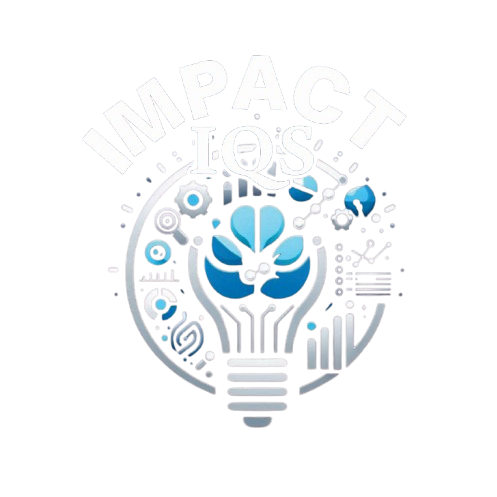There are rarely people who do not need to know how to develop leadership skills throughout their life and career. Leadership skills help people to motivate and coordinate others and to facilitate the accomplishment of tasks by a group of people. Leadership qualities are not just for managers or executives, but anyone can develop skills to be a good leader in any endeavor.
If you are a team manager at a workplace, project manager, or want to work on your interpersonal skills that include being a good team player, then leadership skills take on a crucial role.
Learning these skills coincide with self-awareness, having to learn the basics, and most importantly practicing the skills all through. It calls for readiness to adopt such values as communication, flexibility, and emotional empathy.
In this content, therefore, you will find information on practical tips and recommendations on how to develop leadership skills and how to shed light upon major strengths of leadership qualities and the major issues related to leadership.
By the end of the course, one will have grasped the necessary tools to help improve leadership and potential for personal success in various endeavors.
Why Leadership Skills Matter

It is not about moving up the corporate ladder and becoming a manager or a team leader but about learning how to develop leadership skills at your best. People require effective leaders in all forums, proper job, community, or as friends and family.
Effective management leads to better cohesiveness, people morale and productivity within any organization. For instance, a leader with good communication skills will readily explain objectives to staff to avoid slippage in goal direction. The final competency is also emotional intelligence which enables the leaders to understand others and have the necessary trust in them.
Compiling to this, leadership skills are well demanded in the market hence making it important to master in skills to enable us to get promotion. Apart from organizational benefits, good leadership also shapes individual growth in order to overcome conflict, make the right decision and cope with change.
The process of leadership skills is a lifelong learning, but the end result is terribly fulfilling because it puts you in a central place of leadership where you can positively influence various endeavor’s of life.
Key Leadership Traits to Cultivate
Knowing how to develop leadership skills starts by identifying some of the key characteristics of good leaders. These characteristics are crucial in creating trust, leading to performance, and in dealing with emergent operations.
Effective Communication
Communication is well established as the foundation of leadership and this leadership is nowadays complex. All great things must be communicated and great leaders need to explain themselves to their subordinates to be on the same page.
Intentional listening is just as important because when engaged in active listening patients trust the healthcare provider and are willing to share more. This skill enables the leader to formally or informally address people’s concern, solve disputes, and foster togetherness.
It is also important to communicate in a different way depending on the audience and circumstances. Regardless of a leader promoting a certain way, a team, sharing visions with shareholders or coaching people, effective communication skills improve interactions and make sure everyone is on the same page.
This is a key separator to learning how to develop leadership skills and leadership skills for sustainable leadership.
Emotional Intelligence
Emotional intelligence enables its practitioners to influence others by handling emotion effectively. Self-aware individuals are more trusted, people prefer to work with them and are even willing to be loyal to them. Thus, empathy, which forms a part of the self-social quotient, enables leaders to handle employee’s issues and arrive at conclusions.
It also tames self-instincts of anger and frustrations in situations and helps maintain decorum for the overall conduct of others . Self awareness and the interpersonal skills employed are the keys to formalizing the development of emotional intelligence among leaders which is very rare.
This trait is immeasurably valuable when learning how to develop leadership skills and fostering a welcome and encouraging rapport within any squad or company.
Decision-Making
Effective decision making helps leaders to evaluate a scenario and come up with the best decision to make. Good managers have good decision making skills in that they are able to balance reason with instinct and do so under pressure.
This skill involves acquiring right details, looking for other people’s views, and expecting consequences. When the leadership of a company engages the members of its team in the decision-making process, they stand to create trust and commitment from the members towards implementation of the decision made.
A part of leadership training and learning is to understand how to make decisions in areas of interest because it provides the consistency needed in making decisions when practicing leadership.

Adaptability
Flexibility is always an essential aspect when it comes to leadership given the fact that there is to a certain extent, new change that is always occurring. Flexibility helps leaders in changing key stances, avoiding and mitigating challenges, and capturing new opportunities.
This skill entails being able to embrace a perception of flexibility and positivity even after working through a problem. Flexible leaders encourage their followers to embrace changes and act, and themselves model how to do that.
Acceptance of change makes a person or any organization grow and is very essential for competitiveness. That is why for anyone who is trying to learn how to become a leader it is always important to stay adaptable when the going gets tough and when the conditions are changing often.
Resilience
Resilience enables leaders to persevere when faced with barriers and deal with such situations effectively. This trait ensures that the leaders can be able to bounce back, keep a good attitude across the organization and make the other members do the same.
While addressing, people should identify productive goals, develop stable frames of support, and wean themselves from the effects of failures. Having fears and continually facing them makes them champions of resistance improvement in their organizations.
Building resiliency is critical when learning about how to develop leadership skills because it ensures persistence and effectiveness in leadership advancement.
Read More
10 Best Language Learning Apps
English or Spanish: Learn your Dream Language

Practical Steps to Develop Leadership Skills
Learn Through Education and Training
In order to understand how to develop leadership skills, organized and conducted to the highest efficiency, education and training are inestimable assets.
The leadership and management courses, the workshops, and seminars offer theoretical information and applicative tools. These resources make a person comprehend a number of aspects like communication and decision making and provide a defined framework so as to enable skill development.
Practice Active Listening
Listening attentively is the next step towards even becoming a leader. It presupposes active and complete attention to the speaker, comprehension of what he or she wants to convey, and, ultimately, appropriate reaction.
That is why practicing this skill properly will help leaders to gain trust, solve different conflicts, and create communication openness as the key to obtaining better leadership skills to the necessary degree.
Take Initiative
Being proactive also shows appreciation and admiration to one’s work place as well as the employees. Earlier, these are the aspects reflecting leaders’ interest in challenges and opportunities where they can bring value. No matter it is tackling projects or solving issues, stepping up one’s confidence and creating the path for growth and preparation in leadership.
Build Strong Relationships
Leadership focuses on working together and when there are powerful bonds between the leaders, then leadership is established. In this way, leaders develop other types of relationships with other individuals in the organization such as colleagues and mentors and members of a particular team which form a trust network.
These relationships enrich Organizational communication, organizational work, and organizational sharing as well as influence which are core aspects of leadership.
Reflect on Feedback
Feedback is one of the most effective tools to enhance performance. Managers who read constructive feedback as opportunities enhance their good qualities and reduce bad qualities.
Feedback forms part of self- development since dealing with feedback is a core part of the process of learning how to lead and change oneself for the better in personal and career conduct.
Conclusion
Leadership skills are best understood as skills that are best nurtured over time, and like any other thing that takes time, it is resource intensive. Generally, leadership skills are interrelated and easy to develop once one embraces certain key attributes including interpersonal communication, empathy, problem solving ability, flexibility and personality resilience.
They change the perspective of the process in which there can exist various kinds of problems, but all of them are rather helpful. These are experiences that enable one to foster better leadership skills in him/ her.
Through the use of these behaviors together with the incorporation of feedback on these behaviors, people are capable of attaining their optimized self and provide successful leadership, in that personal and occupational spheres.
Leadership skills are critical components to create and must be highly valued as an essential investment for the future.






